How Australia compares to rules in other countries during the COVID-19 pandemic
While Australia’s COVID-19 lockdown looks to continue for at least another month, parts of America – and even New Zealand – are looking to ease restrictions. This is how their rules compare.
COVID-19 has continued to rattle the globe for months.
There are more than 2.1 million infections globally, with only half a million recoveries and 143,844 deaths.
Nations worldwide have been looking to the World Health Organisation for advice on restrictions to impose to slow the virus’ spread.
While some countries – including Australia, New Zealand and the UK – have enforced strict lockdown measures where residents are only able to leave their homes for necessities and medical care, others have taken a lighter approach at curbing COVID-19, like Sweden.
Here is a glimpse of the restrictions in place around the world.
UNITED STATES
Seven Notheastern states have extended a shutdown until May 15 to slow the spread of the coronavirus.
New York Governor Andrew Cuomo extended his statewide shutdown even though coronavirus hospitalisations continued to level off – dipping slightly from 18,335 on Tuesday to 17,735 on Wednesday, despite 1,996 new daily hospitalisations.
New Yorkers are now mandated to wear masks or other face coverings when entering spaces in which social distancing proves difficult to include both drivers and passengers in for-hire vehicles.
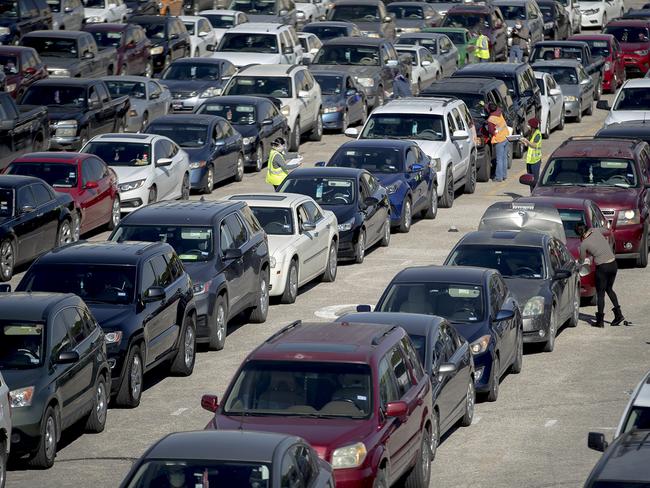
As part of the US’s 30 Days To Slow The Spread movement – issued on March 31 – Americans are required to stay at home if they are sick, if their child is sick, if somebody in their household is sick, if they are an older person or a person with a serious underlying health condition.
Residents are also encouraged to work, or engage in schooling, from home if they are able to.
Social gathers of more than 10 people should also be avoided as well as discretionary travel and visiting nursing ones, retirement or long-term care facilities unless providing critical assistance.
Americans are encouraged to practice good hygiene, including washing their hands, not touching their face, sneezing or coughing into a tissue, or the crook of their elbow, and disinfecting frequently.
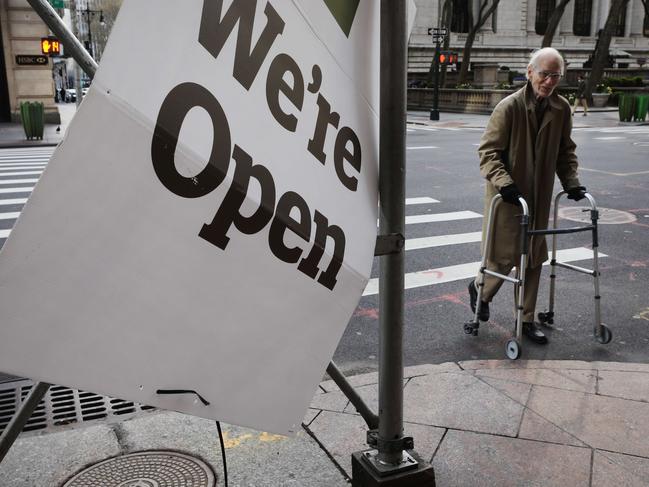
The measures follow US President Donald Trump laying out “a phased and deliberate approach” to restoring normal activity in places which have strong testing and are seeing a decrease in COVID-19 cases.
His decision comes as the number of confirmed cases surpasses 672,000 across the US, with only 54,594 recoveries and 34,386 deaths as of 10.30am (AEST).
The new guidelines are aimed at easing restrictions in areas with low transmission of the coronavirus, while holding the line in harder-hit locations.
The new guidelines in the US include:
• Places with declining infections and strong testing would begin a three-phase gradual reopening of businesses and schools
• In phase one the plan recommends strict social distancing for all people in public. Gatherings larger than 10 people are to be avoided and non-essential travel is discouraged
• In phase two, people are encouraged to maximise social distancing and limit gatherings to no more than 50 people unless precautionary measures are taken. Travel could resume
• Phase three envisions a return to normalcy for most Americans, with a focus on identification and isolation of any new infections
• The guidelines recommend states pass checkpoints which look at new cases, testing and surveillance data over the prior 14 days before advancing from one phase to another
Some parts of the country could see a resumption in normal commerce and social gatherings after a month of evaluating whether easing up on restrictions has led to a resurgence in virus cases.
In other parts of the country, or if virus cases pick up, it could be substantially longer.
Seven Midwestern governors announced Thursday they would co-ordinate on reopening their economies.
UNITED KINGDOM
Britain has extended its nationwide COVID-19 lockdown for another three weeks as stand-in leader Dominic Raab – deputising while Prime Minister Boris Johnson recuperates from the coronavirus – orders Britons to stay at home.
The UK has the fifth-highest official death toll from COVID-19 in the world, following the US, Italy, Spain and France.
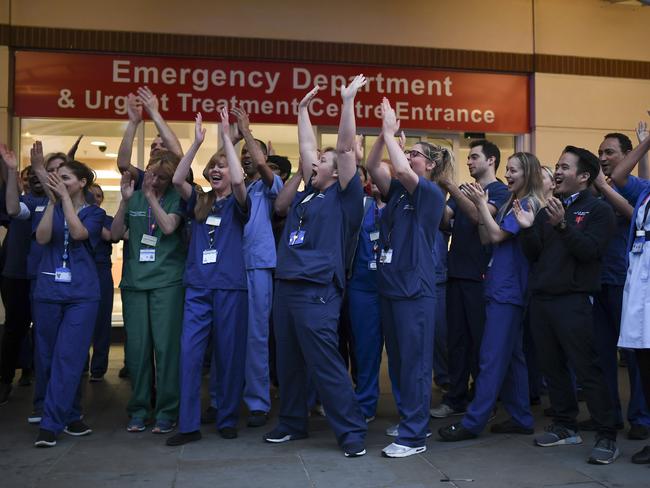
British figures, however, only cover hospital fatalities and the real number is probably much higher.
The UK’s death toll from COVID-19 in hospitals rose 861 in a day to stand at 13,729 deaths as of Wednesday afternoon.
The nation’s residents are only allowed to leave their place of residence to shop for basic necessities or meet medical needs.
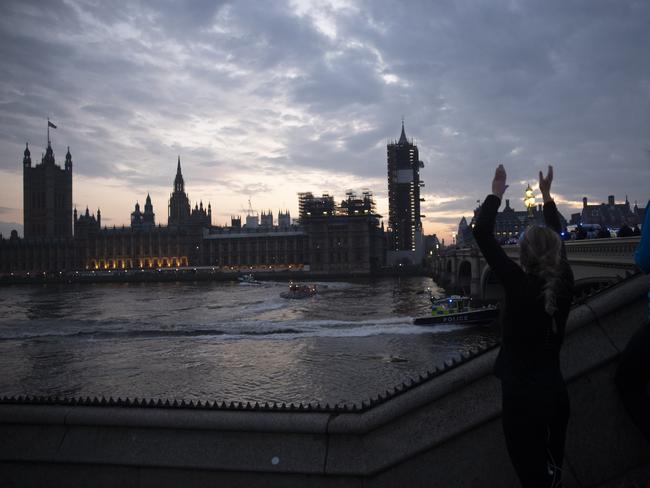
They are allowed to exercise in public once a day – walking cycling, running – and are allowed to travel to work if unable to work from home.
The measures were imposed on March 23 for an initial three-week period.
A YouGov poll conducted before Thursday’s announcement showed 91 per cent of Britons supported a three-week extension to the lockdown.
Other measures in place for Britons include:
• If Britons do go outside, they are required to stay two metres away from other people at all times
• Britons are expected to wash their hands as soon as they get home
• Britons are not allowed to meet others, even friends or family, unless living in the same household
• Britons are only allowed to provide support to vulnerable people if they are well and have no symptoms – a cough or high temperature – as well as nobody in their household does
• The nation is encouraging its residents to delay moving to a new house while the measures are in place to fight coronavirus as well as staying in their local areas when they go outside for exercise
• As part of a UK-wide package of support, £360 million is being directly allocated by government departments to charities providing key services and supporting vulnerable people during the crisis
• A further £370 million is being invested into small and medium-sized charities, including through a grant to the National Lottery Community Fund for those in England, which will support organisations making a big difference during the outbreak – delivering food, essential medicines and providing financial advice
• The government will match donations to the National Emergencies Trust as part of the BBC’s Big Night In fundraiser later this month – pledging a minimum of £20 million
SWEDEN
Sweden’s parliament on Thursday passed a new law granting the government temporary powers to quickly adopt measures aimed at curbing the spread of the new coronavirus without prior parliamentary approval.
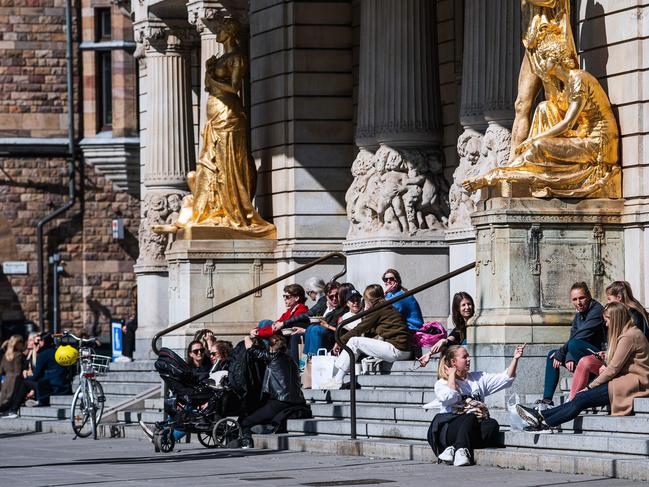
The new law grants the Social Democrat-led government the ability to temporarily close businesses, limit public gatherings or shut down ports and airports, as well as a number of other measures.
The new powers come into force on April 18 and last until the end of June.
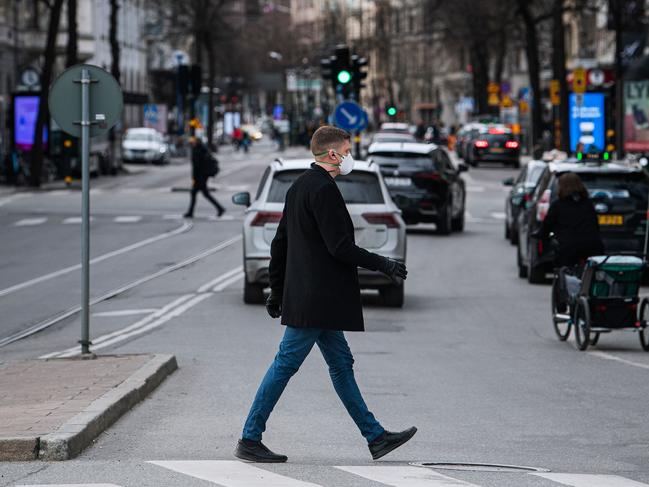
However, so far the government has not pursued such measures, opting for a softer approach and calling for citizens to take responsibility to follow social distancing guidelines.
These measures in Sweden include:
• The government has banned gatherings of more than 50 people and barred visits to nursing homes
• There has also been a month-long extension of a ban on non-necessary travel to the country from outside the EU, in line with a joint EU decision
• Residents are encouraged to work from home and stay indoors if they are over 70 or are feeling sick
• Swedes are still able to shop, go to restaurants, get haircuts and send children under 16 to school, even if a family member is sick
AUSTRALIA
Australia’s COVID-19 restrictions will remain in place for at least the next four weeks until health benchmarks are met.
The Australian Government imposed restrictions on non-essential gatherings in March, unless it was to travel to work or school; shop for essential supplies including groceries; exercising; and attending medical appointments or compassionate visits.
Australians are expected to practice hand hygiene and good physical distancing, keeping at least 1.5 metres away from one another while out in public.
From March 23, pubs, clubs, gyms, indoor sporting venues, cinemas, entertainment venues, casinos and night clubs were forced to close under restrictions to slow the spread of COVID-19, with cafes and restaurants being limited to takeaway or home delivery.
From March 26, restrictions were extended to food courts – except for takeaway – personal services, strip clubs, brothels and sex on premises venues; amusement parts; personal services; real estate auctions and open houses; galleries, national institutions, historic sites and museums; health clubs and fitness centres; community facilities; indoor and outdoor markets; and gaming and gambling venues.
Weddings are to be conducted with no more than five people, funerals must be limited to no more than 10, and hairdressers and barbers can continue to operate with strict social distancing in place and four square metres between customers.
Hotels, hostels, bed and breakfast, campsites, caravan parks and boarding houses are a decision for each state.
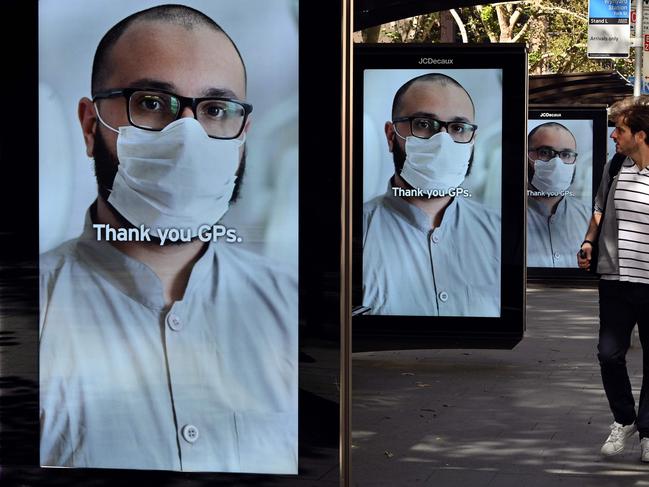
Other measures in place in Australia include:
• Qantas and Virgin will receive at least $165 million in government support to keep flying critical domestic routes
• The federal government has set up a $500 million loan fund to help struggling exporters
• 230 extra intensive care beds have been installed at Victorian hospitals as part of its $1.6 billion health funding boost
• The federal government will roll out 83 new mobile coronavirus testing sites across Australia’s remote indigenous communities – confirming infection cases in 45 minutes
• The Tasmanian government aims to reopen the emergency department on Friday at one of two northwest hospitals shut for deep-cleaning. About 5000 people have also been placed into quarantine for two weeks
• More Qantas flights could be arranged to bring home Australians in India and the Philippines, at their own expense, while 220 remain stranded in Lebanon
• The Victorian government has announced a $500 million relief package to help tenants struggling to pay rent due to the coronavirus and a ban on them being evicted
• The federal government has committed $320 billion to combat the virus’ health and economic effects
• A $130 billion JobKeeper scheme will provide coronavirus-affected businesses $1500 a fortnight to pass onto employees over six months
• Australians returning home from overseas must be quarantined for two weeks in hotels or other accommodation before being allowed home
• Australians, excluding aid workers and compassionate cases, are banned from international travel
• Still open: supermarkets, pharmacies, banks, public transport, some schools, hairdressers, petrol stations, postal and freight services, bottle shops, newsagents, retail shops. Restaurants restricted to takeaway/delivery in most states
NEW ZEALAND
New Zealand is currently at Alert Level 4 – Eliminate, which means it is likely COVID-19 is not contained nationwide.
While New Zealand is still at this stage, its government has been discussing transitioning to an Alert 3.
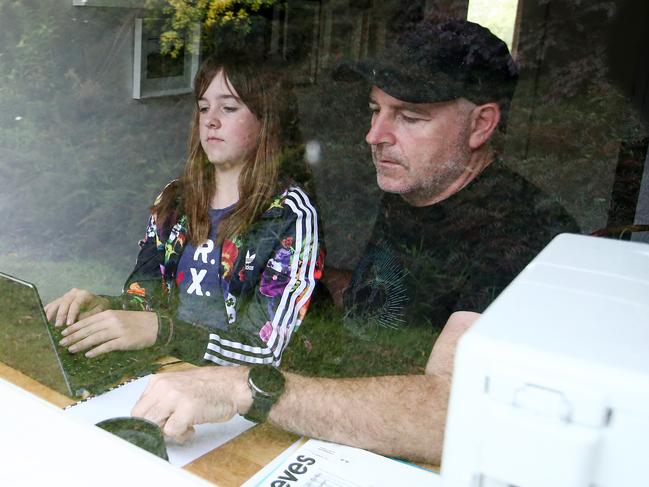
Prime Minister Jacinda Ardern revealed Alert 3 would still mean staying in your household for residents – a move considered as the “waiting room” before residents can get some normality back into their lives.
New Zealand’s government is expected to make a decision about when the lockdown will ease on April 20.
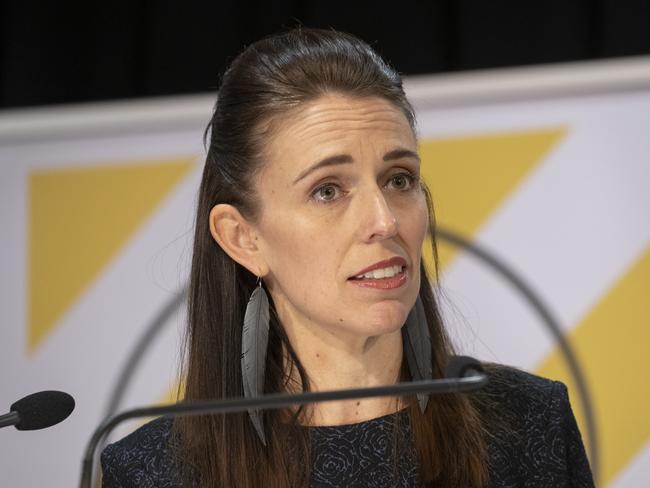
Currently restrictions in place in New Zealand include:
• Anyone not involved in essential work needs to stay at home
• Educational facilities are closed
• Businesses are closed, except for essential services like supermarkets, pharmacies and clinics, and lifeline utilities
• Residents must reside at the same place for the duration of the time New Zealand is at Alert Level 4. Where you stayed on the evening of March 25 is where you must remain
• You must only be in physical contact with those you are living with
